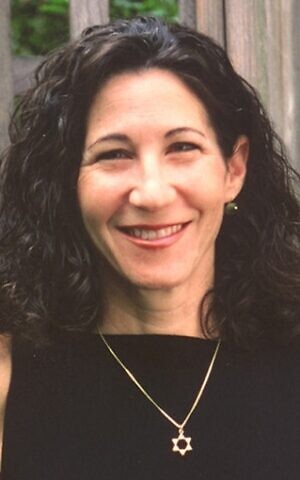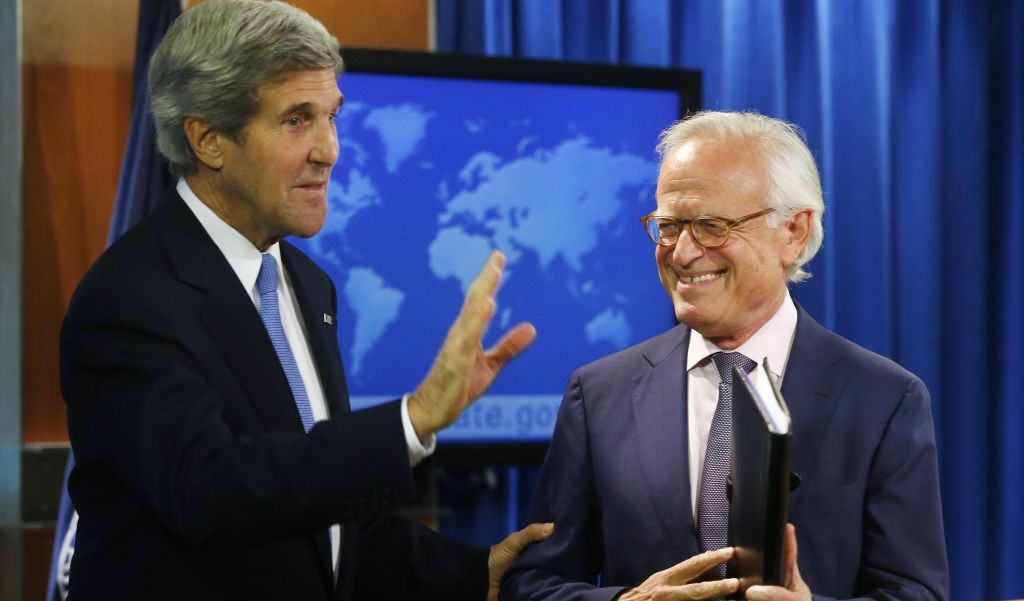NEW YORK — A former US ambassador to Israel on Wednesday said he foresaw “dark times” before Israelis and Palestinians approach peace again, but said that the moment would eventually come.
“At the end of my journey I’m reconciled to the idea that I will not see peace in my time,” said Martin Indyk, a veteran diplomat who served as ambassador under former US president Bill Clinton.
“Peace for Israel will surely come. It is bound to come as a result unfortunately of violence and conflict,” he said. “The arc of the Arab-Israeli conflict is long but I know from my experience it bends toward peace.”
Indyk addressed the Israel Policy Forum at an event held in his honor in New York City. The forum is an American Jewish organization dedicated to working toward a two-state solution.
The event came as a resolution to the conflict appears increasingly distant, violence spikes in the West Bank and the incoming right-religious government appears set to alienate swaths of American Jewry and take a hardline approach to the Palestinians.
Get The Times of Israel's Daily Edition by email and never miss our top stories
The head of the Israel Policy Forum, Susie Gelman, acknowledged that the vision of a Jewish and democratic Israel was “facing enormous challenges.”

Susie Gelman (Courtesy)
“Rather than resign our efforts or turn away, we must redouble our efforts,” she said at the event, which also featured Hady Amr, the Biden administration’s envoy to the Palestinians. Amr, introducing the former ambassador, described Indyk as a mentor whose advice he routinely sought.
Indyk traced his longtime involvement in the conflict back to his arrival in Israel in 1973.
The country had been full of hubris after its stunning success in the Six Day War, but underwent a reevaluation after the catastrophe of the Yom Kippur War later that year, he recalled.
He served two stints as US ambassador under president Bill Clinton, helping to broker the Oslo Accords. That auspicious era for the peace process collapsed with the horrors of the Second Intifada in the early 2000s.

US Secretary of State John Kerry with former US ambassador to Israel Martin Indyk at the State Department in Washington, Monday, July 29, 2013. (AP/Charles Dharapak)
Indyk warned that the West Bank was on the precipice again. He visited Israel several weeks ago and heard from security officials that they believed another intifada was already on its way, he said.
“The ground is really fertile for an explosion,” he said, citing the crumbling Palestinian Authority, young Palestinians who do not remember the trauma of the intifada, the availability of weapons in the West Bank, and the settlements.
“This combination really is creating a tinderbox and they have a new Israeli government in which the far-right parties represent the settlements and they’re going to want a ‘price tag’ approach,” he said, referring to retribution by Jewish groups after terror attacks. “That’s just going to fuel the cycle of violence.”
“We’re headed into a very dark time,” Indyk said, but urged proponents of peace to keep hope for a solution.
“Be ready when that moment comes, and it will come just like it’s come every other time when people have suffered from violence and tried all the alternatives,” he said. “They will come back to the idea of pursuing peace.”
He said the US has a critical role to play in giving hope to both sides and mapping out a resolution to the conflict, and that the Biden administration prefers to focus attention on Ukraine and China but would have to reengage in the Middle East if the conflict spirals.
The US has for now held off on making any commitments regarding the expected new Israeli government as presumed incoming prime minister Benjamin Netanyahu works to consolidate his coalition.
Netanyahu’s political partners in the coalition, especially far-right leaders Itamar Ben Gvir, Bezalel Smotrich and Avi Maoz, present a problem for the US and many American Jews due to their anti-pluralistic agenda. Ben Gvir in particular has a history of racism and incitement to violence.
US Secretary of State Antony Blinken has said the Biden administration will judge the incoming government by its policies and not by the individual lawmakers, and US Ambassador to Israel Tom Nides has refused to say whether he will meet with Ben Gvir.


